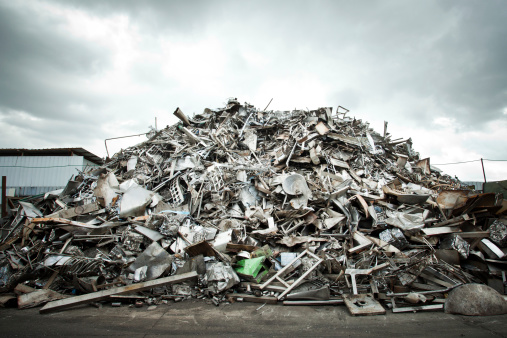How Does Metal Recycling Work?

Scrap metal recycling is an excellent way to manufacture new products without the need for new materials. Recycling reduces the demand on local landfills and prevents pollution that can affect delicate ecosystems. Keep reading to learn more about the metal recycling process and how it works.
Commonly-Recycled Metals
Many metals used in consumer products today can be recycled to create new products. A metal is considered desirable for recycling when it can be melted and re-formed without losing considerable strength and durability. Some of the most commonly-recycled metals today are aluminum, steel, copper, nickel, platinum, gallium, gold, and silver. The most frequently-recycled metal items include beverage cans, metal food containers, electronics, automobile components, and appliances.
The Recycling Process
When metal is collected for recycling, it must be sorted by type before processing can begin. In some cases, larger pieces are cut into smaller components for ease of processing. The metal is cleaned and exposed to high temperatures in a furnace to create a molten metal solution, which is then tested for purity. Additional metals or gases can be added to change the purity of the metal solution or create alloys for manufacturing purposes. Once this process is complete, the molten metal is poured out of the furnace. Metal may be formed into ingots, rods, billets, or slabs, depending upon its intended purpose. Alternatively, metals may be pulverized into a powder or transported in liquid form to a manufacturing facility, where they are used to create new components and products.
Since 1986, Tucson Iron and Metal has been providing local recycling services with an eye to the global environment. We maintain our own fleet of equipment and are dedicated to meeting your unique metal recycling needs, large or small. You can reach us via our website or by calling (520) 884-1554 to discuss the purchase or sale of ferrous and non-ferrous metal products including lead, copper, brass, aluminum, iron, and steel.

